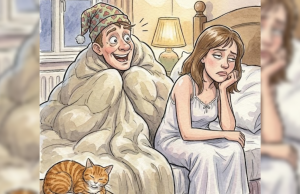
Leaving gray hair natural, without dyeing it, is a decision that more and more people are making, and one that has also begun to be analyzed from a psychological perspective. For a long time, gray hair was associated with old age, the loss of youth, and consequently, a certain decline in social value. However, in recent years, it has become a symbol of personal acceptance, authenticity, and emotional strength. This change in outlook is not minor: it reflects profound transformations in the way individuals relate to their own image and to external pressures.

According to specialists, choosing not to dye and showing gray hair implies a redefinition of identity. Hair is understood as an important part of one’s physical appearance and, therefore, of how one presents oneself to others. Those who decide to leave it natural often go through an internal process of acceptance that leads them to question the idea that youth is the only valuable state. Instead of fighting the passage of time, it is accepted as an inevitable process that can be lived with dignity.
From a psychological perspective, this gesture can be seen as a form of self-affirmation. Not dyeing your hair is a way of saying, “This is me, this is how I feel, and I don’t need to hide it.” It represents a rejection of the social and aesthetic pressure that for decades has fallen especially on women, although men have also been affected by the mandate to hide their gray hair to appear younger and more competitive. Choosing to do the opposite can be liberating, because it represents a break from the fear of not meeting traditional beauty standards.
At the same time, going gray can be interpreted as a sign of psychological maturity. It means recognizing that personal value lies not only in appearance, but also in experience, character, and authenticity. Many people describe this decision as a relief because it eliminates the constant need to cover up their hair and allows them to invest their energy in other areas of life. In that sense, it can be considered a practice of self-care and internal coherence.

However, this is not just an individual issue, but also a social one. The acceptance of gray hair speaks to a cultural shift that impacts collective self-esteem. Social psychology explains that when a group of people begins to challenge a stereotype, it paves the way for others to do the same. Thus, showing gray hair can become an act of symbolic resistance to the obsession with eternal youth and aesthetic perfection.
Another aspect highlighted by experts is the relationship between gray hair and emotional honesty. Those who don’t hide it send a clear message: I don’t need to fake an age I’m not, or pretend to be something I’m not. This fosters more sincere bonds, because the person reveals themselves as they are, without layers of artifice. On a psychological level, this transparency strengthens self-esteem and reinforces the sense of congruence between the internal and external.
Of course, the decision isn’t the same for everyone. Some people feel more comfortable dyeing their hair, and this also responds to valid emotional needs. What’s important, from a psychological perspective, is that the act of dyeing or not dyeing is a conscious choice and not a social imposition. The difference lies in whether it’s done out of personal taste or fear of others’ judgment.
In conclusion, leaving your gray hair undyed is much more than an aesthetic issue: it’s an act laden with psychological and cultural significance. It represents acceptance of one’s own life process, reaffirmation of identity, and an exercise of freedom from stereotypes. For many, it’s a way of reconciling with time, prioritizing authenticity, and showing the world that a person’s value doesn’t depend on the color of their hair, but on the history and security with which they choose to live.















